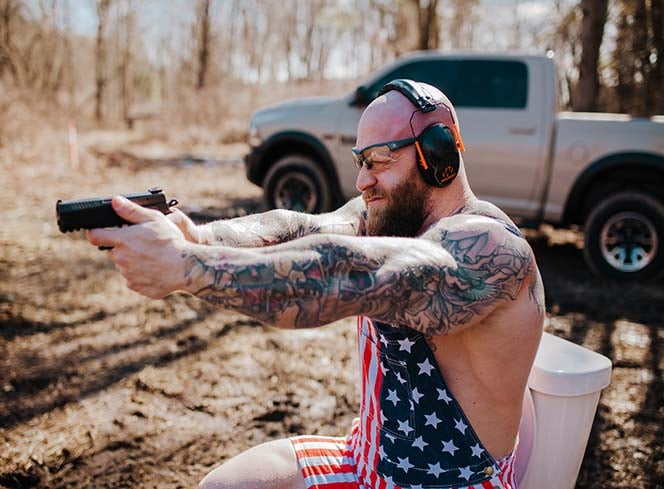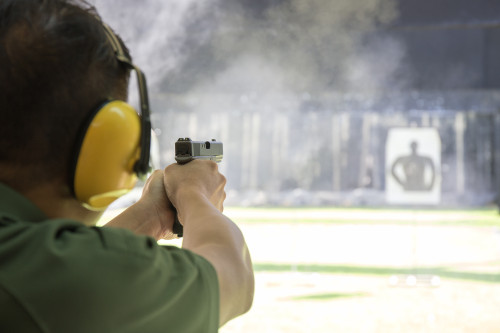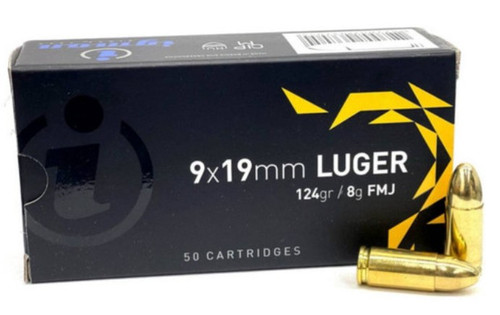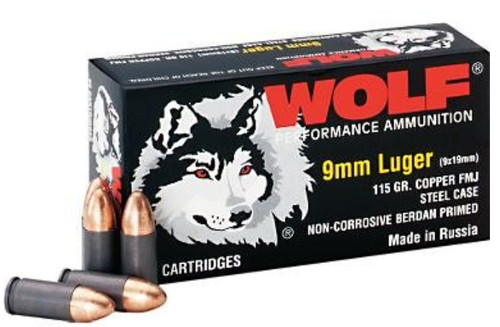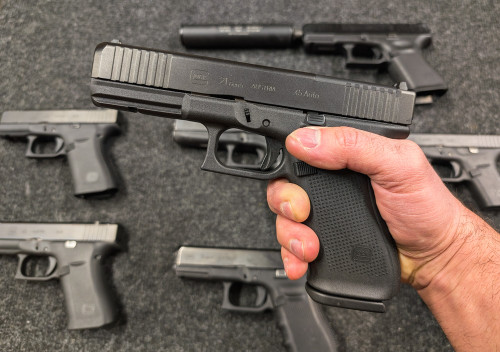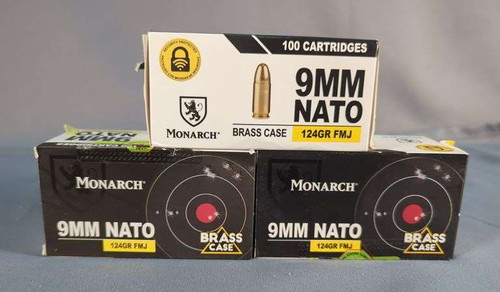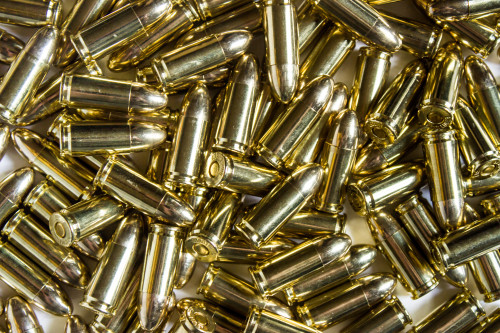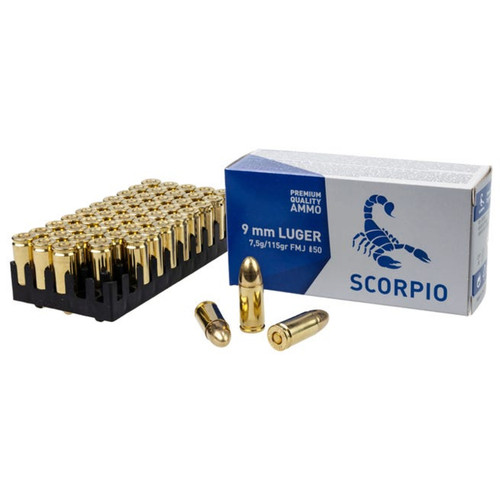The debate between .380 ACP and 9mm remains one of the most significant discussions in handgun caliber selection. This comparison holds particular importance for both novice and experienced shooters seeking to make informed decisions about defensive firearms.
These two calibers share similar dimensional characteristics while maintaining distinct operational profiles. The 9mm demonstrates superior ballistic performance in most applications, while the .380 ACP offers specific advantages in concealment and recoil management. This comprehensive analysis examines the characteristics, applications, and practical considerations of both calibers.

Federal Premium 9mm 147gr JHP
$28.99
at Pro Armory
Prices accurate at time of writing
Exploring the .380 Caliber
History and Development
The .380 ACP (Automatic Colt Pistol) represents a significant development in firearms history, introduced by John Moses Browning in 1908. The cartridge, also designated as 9mm Browning, 9x17mm, or 9mm short, was engineered to achieve optimal balance between power delivery and recoil management.
The initial development aimed to serve both military and civilian applications. While military adoption remained limited, the .380 ACP established a strong presence in the civilian self-defense market, where its characteristics proved particularly advantageous for concealed carry applications.
Characteristics of the .380 ACP
The .380 ACP was engineered with a specific purpose in mind: to offer manageable recoil while maintaining enough stopping power for self-defense situations. Here's what makes it special:
- Lighter recoil compared to larger calibers
- Excellent choice for smaller-framed shooters
- Perfect for compact and subcompact pistols
- Ideal for concealed carry due to smaller gun sizes
The cartridge's design allows for smaller, lighter handguns that are easier to conceal and carry. Individuals who experience difficulties actuating the slide on a 9mm pistol may find the slide on a .380 ACP easier to manage. This makes it particularly popular among those who prioritize convenience and discretion in their everyday carry.
Exploring the 9mm Caliber
Overview of 9mm
The 9mm Luger (9x19mm) stands as one of the most successful handgun cartridges ever created. It's the standard-issue caliber for NATO forces and countless law enforcement agencies worldwide.
What makes the 9mm so special? Here's why it's earned its reputation:
- Excellent balance of power and controllability
- Superior penetration and expansion characteristics
- Higher magazine capacity due to cartridge size
- Widely available and typically more affordable
Advantages of Choosing 9mm
The 9mm's popularity isn't just about tradition - it's earned its status through proven performance. Modern 9mm ammunition offers:
- Greater stopping power than .380 ACP
- Better ballistic performance
- More consistent expansion with defensive ammunition
- Maximum effective range of up to 50 meters
Head-to-Head Comparison: .380 vs 9mm
Power and Performance
Ballistic testing reveals substantial performance differences between the 9mm and .380 ACP calibers. The 9mm cartridge achieves significantly higher muzzle velocities, ranging from 1,100 to 1,400 feet per second. These enhanced velocities result in superior penetration depth and more consistent expansion characteristics in defensive ammunition.
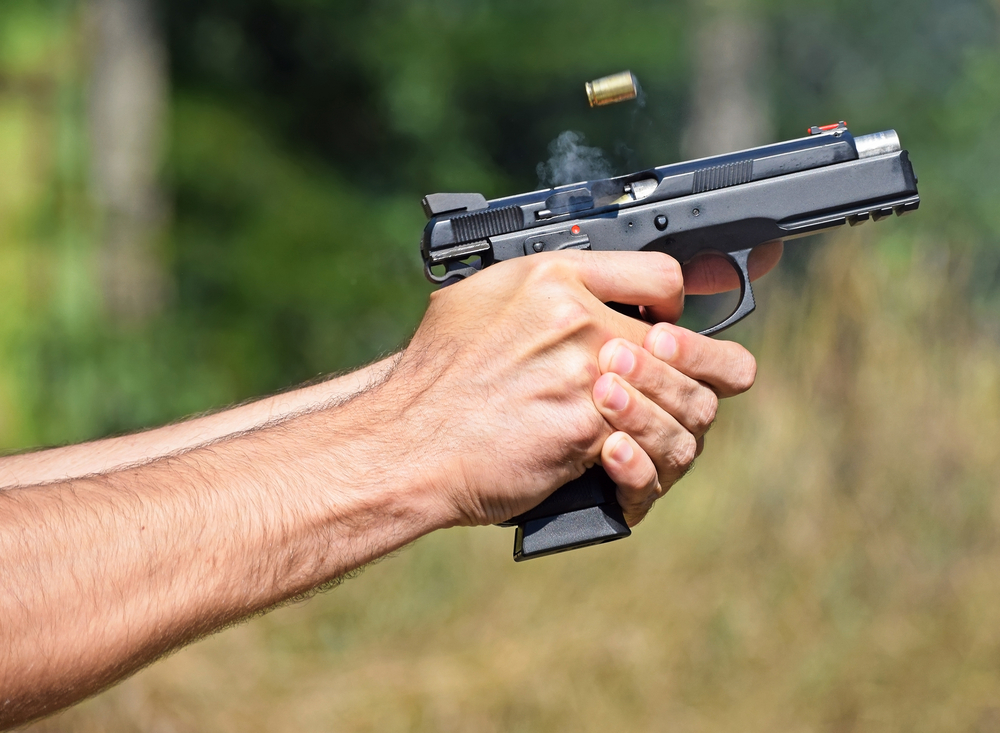
Modern 9mm hollow point ammunition demonstrates reliable terminal performance, creating effective wound channels through consistent expansion and penetration. The increased kinetic energy of the 9mm round provides enhanced stopping power, particularly evident in standardized ballistic gel testing.
The .380 ACP operates within a more modest velocity range of 900-1,000 fps. Despite this lower velocity, advancements in ammunition technology have improved the cartridge's terminal effectiveness. Current defensive loads in .380 ACP demonstrate adequate penetration and expansion at typical self-defense distances, though not matching the performance metrics of the 9mm platform.
Recoil and Shootability
Recoil characteristics represent a key differentiating factor between these calibers. The .380 ACP generates approximately 94% less recoil than the 9mm in similarly sized firearms, resulting in significantly improved control and faster target reacquisition. This reduced recoil profile makes the .380 ACP particularly suitable for shooters who prioritize management of follow-up shots. It offers enhanced confidence for those who are recoil sensitive, such as smaller framed individuals or elderly shooters.
The 9mm caliber requires more substantial grip strength and technique development for effective control. While the recoil remains manageable with proper training, the platform demands additional practice for proficiency. The increased muzzle flip and recoil energy of the 9mm necessitate stronger fundamentals and consistent training to maintain accuracy.
Shot placement accuracy remains the primary factor in defensive effectiveness, regardless of caliber selection. The reduced recoil of the .380 ACP can contribute to improved accuracy for some shooters, while the 9mm offers enhanced terminal performance for those who can manage its characteristics effectively. Each caliber presents distinct advantages in practical application, depending on individual capability and training investment.

Sig Sauer Elite Performance V-Crown Ammunition 9mm 115gr JHP- 50 Rounds
$39.99
at Pro Armory
Prices accurate at time of writing
Ideal Uses for Each Caliber
Best Uses for .380 ACP
The .380 ACP demonstrates specific advantages in close-quarter defensive situations. This caliber performs optimally within a 7-10 yard range, making it particularly effective for personal protection in urban environments. The cartridge's characteristics allow for rapid deployment in situations where immediate response is crucial.
In close-range self-defense scenarios, the .380 ACP provides adequate stopping power while maintaining manageable recoil. The round's terminal ballistics prove effective at typical defensive distances, particularly when paired with modern defensive ammunition. This performance profile aligns well with statistical data showing most civilian defensive encounters occur within these distance parameters.
The .380 ACP has established a strong presence in the backup weapon role, particularly among law enforcement personnel. Its compact size facilitates deep concealment options, while maintaining sufficient power for defensive use. The cartridge's dimensions allow for smaller frame pistols, making it an ideal secondary carry option when full-size firearms prove impractical.
Best Uses for 9mm
The 9mm cartridge demonstrates remarkable versatility across multiple applications. Its balanced performance characteristics make it suitable for both defensive and recreational shooting scenarios. The round's effectiveness has been well-documented through extensive military and law enforcement use worldwide.
In terms of all-around performance, the 9mm excels in various situations. The cartridge delivers consistent results in home defense scenarios, competitive shooting events, and personal protection applications. Modern ammunition developments have further enhanced its terminal performance, contributing to its widespread adoption by professional organizations and civilians alike, for concealed carry.
Training and practice considerations favor the 9mm platform due to several practical advantages. The ammunition's general affordability and widespread availability ensure consistent access to practice materials. Most shooting ranges maintain substantial stocks of 9mm ammunition, offering various options for skill development. The moderate recoil characteristics of the 9mm facilitate proper technique development while providing sufficient feedback for skill progression.
Concealed Carry Considerations
Why Concealability Matters
The selection of a concealed carry firearm involves careful consideration of multiple factors, with size being a primary concern. The physical dimensions of the firearm directly impact both concealment effectiveness and practical usability in defensive situations.
Firearm Size Considerations
The .380 pistols typically feature more compact dimensions and lighter weight profiles compared to their 9mm counterparts. These reduced dimensions facilitate easier concealment and minimize printing through clothing. However, the smaller frame size often results in increased felt recoil and potentially reduced shooting accuracy, particularly at longer distances.
9mm firearms present a broader range of options, from micro-compact to full-size frames. This variety allows for selection based on individual preferences and carrying requirements. While larger 9mm firearms offer improved control and sight radius, their increased dimensions necessitate more careful consideration of concealment methods and clothing choices.

50 Cal Ammo Can
$18.99
at Pro Armory
Prices accurate at time of writing
Clothing and Environmental Factors
Clothing choices significantly influence concealed carry effectiveness. The smaller dimensions of .380 pistols prove advantageous when wearing lighter or more fitted attire, requiring minimal adaptation to existing wardrobe choices. These firearms adapt well to various carrying positions without significant printing concerns.
9mm firearms, particularly in larger frames, require more deliberate holster selection and clothing accommodation. Seasonal variations in attire must be considered, as winter clothing provides additional concealment options compared to summer wear. The selection of appropriate holster systems becomes crucial for maintaining effective concealment while ensuring consistent access to the firearm.
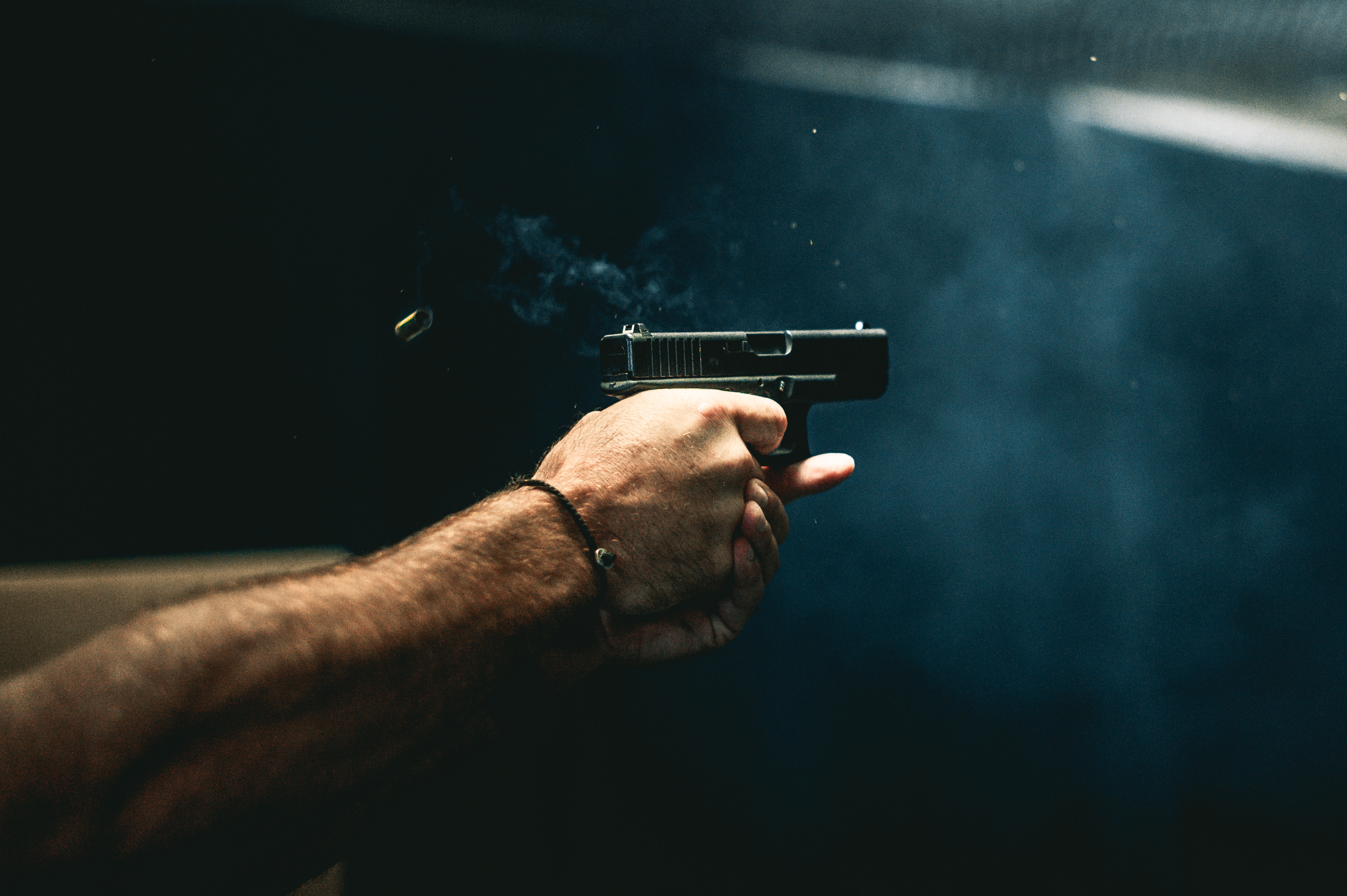
The relationship between firearm size and practical concealment extends beyond mere dimensions. Factors such as grip length, slide profile, and overall weight distribution play crucial roles in determining effective concealment. These considerations must be balanced against the practical shooting characteristics required for defensive applications.
Recommendations Based on Lifestyle and Threat Assessment
Your choice should align with your personal circumstances:
For Urban Carry:
.380 ACP might be preferable if you:
- Wear light or fitted clothing
- Need deep concealment
- Have limited carrying experience
- Want maximum discretion
For General Self-Defense:
9mm might be better if you:
- Can accommodate a larger firearm
- Want maximum effectiveness
- Have more shooting experience
- Don't mind additional weight
The Verdict
A comprehensive analysis of both calibers reveals distinct advantages for each platform. The 9mm demonstrates superior ballistic performance, including better terminal effectiveness and penetration capabilities. The platform offers extensive ammunition options at more economical price points, along with higher magazine capacity in most firearms.
The .380 ACP, while operating at lower power levels, excels in specific applications. The platform's reduced recoil characteristics make it particularly suitable for shooters who prioritize control and rapid follow-up shots. The cartridge's dimensions enable the design of ultra-compact pistols, making it effective as a backup firearm or in situations requiring discrete carry.
Clothing considerations play a significant role in caliber selection. The compact dimensions of .380 ACP firearms allow for easier concealment under light clothing, while 9mm platforms may require more detailed consideration of holster selection and garment choice. The optimal choice depends on a careful assessment of specific requirements, including carry method, deployment scenarios, and individual proficiency levels.
Both calibers serve distinct purposes effectively. The 9mm's broader performance envelope makes it suitable as a primary defensive round, while the .380 ACP's characteristics align well with backup or deep concealment requirements. This complementary relationship suggests that both calibers maintain valuable roles in defensive applications.
Frequently Asked Questions
1. Is .380 ACP powerful enough for self-defense?
Yes, the .380 ACP is adequate for self-defense when used with quality defensive ammunition. While it may not match the 9mm's performance, modern .380 hollow points can provide effective stopping power at typical self-defense distances. The key is shot placement and using proper defensive ammunition.
2. Why is 9mm ammunition usually cheaper than .380?
9mm ammunition is typically less expensive due to higher production volumes and military/law enforcement contracts. The economy of scale and widespread use make it more cost-effective to manufacture. Additionally, 9mm's NATO standard status ensures consistent high-volume production.
3. Can a new shooter handle a 9mm, or should they start with .380?
This depends on the individual shooter's physical capabilities and comfort level. While .380 has less recoil, many new shooters successfully start with 9mm. The key is proper training and choosing a well-fitted firearm. Consider taking a basic pistol course before making your decision.
4. Which caliber has better ammunition availability?
9mm is generally more widely available and offers more variety in ammunition types. During ammunition shortages, 9mm tends to recover stock levels faster than .380 ACP. However, both calibers are common enough that finding ammunition shouldn't be a major concern.
5. Does barrel length affect the performance difference between these calibers?
Yes, barrel length affects velocity and energy for both calibers. Shorter barrels typically result in reduced velocity, which can impact terminal performance. This effect is more pronounced with 9mm due to its higher initial velocity and energy potential.
6. Can I carry both calibers for different situations?
Absolutely. Many experienced carriers use both calibers, choosing between them based on clothing, activity, and concealment needs. A 9mm might serve as a primary carry gun, while a .380 works as a backup or deep concealment option when necessary.





